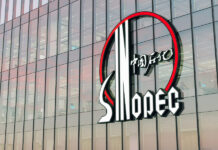The main foreign exchanges that have a welcoming and encouraging attitude toward Chinese mining companies include the Stock Exchange of Hong Kong, the Toronto Stock Exchange, the Australian Securities Exchange and the London Stock Exchange. Among these, the first three have a relatively greater edge when it comes to financing amounts, trading activity and refinancing. This column will focus on general legal issues involved in listing on the exchanges mentioned, as well as PRC domestic legal issues that need to be addressed for such listings.

Lin Lei
中伦文德律师事务所
合伙人
Partner
Zhonglun W&D Law Firm
Operational consistency
Except as required for a restructuring, the company will have a relatively consistent operating entity and equity title relationship during the past two to three fiscal years, depending on the requirements of the stock exchange in question. While operating, the company should have the various approvals, permits, certificates and licences required for production and operation as specified in law, and be carrying out its activities within its registered scope of business.
None of the company’s operations may lack the above-mentioned operating qualifications or be carried out beyond the scope of business, as legal consequences could arise due to operating in violation of regulations.
Conflicts of interest
Shareholders and senior officers of Chinese companies often have investments in numerous entities engaging in similar business, constituting a conflict of interest with the listed group. Accordingly, during the preparatory work before listing, consideration needs to be given to merging these types of investments into the listed group, or divesting them and selling them to an unaffiliated third party.
Connected transactions
Within a company, any transaction between the company and one of its shareholders or senior officers constitutes a connected transaction. Unlike conflicts of interest, not all connected transactions are prohibited; on the contrary, connected transactions that are disclosed and have been approved by the shareholders are permitted and lawful.
In addition to the above general requirements, different exchanges have special requirements in respect of the listing of mining companies.
Stock Exchange of Hong Kong
In addition to the application of general regulations for listing, mining companies are required to comply with the special provisions of chapter 18, Mineral Companies, of the Main Board Listing Rules.
The special provisions set out detailed provisions on the conditions for listing mining companies, the contents of application documents, continuing obligations, relevant notifiable transactions involving the acquisition or disposal of mineral assets, statements on resources and/or reserves and reporting standards.
Toronto Stock Exchange
The Toronto Stock Exchange has different listing rules depending on the stage of exploration or exploitation at which a company finds itself, which affects whether the company lists on the venture exchange or main board; for different stages, there are pertinent provisions for mining rights, invested capital, working capital and financial resources, net tangible assets, earnings or revenues, management and board of directors as well as distribution, market capitalisation and public float.
In contrast to the Stock Exchange of Hong Kong, the Toronto Stock Exchange permits mining companies that have completed exploration but not yet commenced exploitation to list, provided they satisfy the corresponding venture exchange or main board listing requirements mentioned above.
Australian Securities Exchange
The special requirements of the Australian Securities Exchange include those in respect of the number of shareholders, company size (profitability level), financing undertaking, working capital, independent technology, and lawyers’ and technical reports on mining rights, which are required to comply with the requirements of the Australasian Code for Reporting of Exploration Results, Mineral Resources and Ore Reserves (JORC code).
It should be noted that the JORC code is the common standard for the recognition and measurement of ore reserves of various exchanges internationally, and given that it is incompatible with China’s standards for classifying ore reserves, a PRC domestic mining company that intends to list on a foreign exchange will normally need to engage a foreign-qualified expert to assess and issue an opinion anew in respect of its domestic ore.
Relevant PRC regulations
In a foreign listing, relevant Chinese domestic legal issues also need to be considered:
(1) Restrictions on equity transfers.
Restructuring carried out in a red-chip fashion also involves the transfer of the exploration rights or exploitation rights. In accordance with the law, to transfer exploration rights, such conditions as at least two years having expired since the date of issuance of the exploration permit need to be satisfied; and to transfer exploitation rights, such conditions as the mining company having entered into production for at least one year need to be satisfied.
In practice, the land resources authorities have been attempting to limit speculation by stringently limiting the transfer of mining rights. In an effort to circumvent such restrictions, many investors have invested in enterprises holding mining rights through equity acquisitions.
(2) Approval certificate to exploit gold ore.
Gold is a special ore that the state specifies is subject to protected exploitation. The Ministry of Industry and Information Technology (MIIT) and the Ministry of Land and Resources exercise their authority over gold mining respectively. Many gold mining enterprises have successfully secured a mining permit, but not yet acquired the MIIT approval.
Therefore, when a foreign investor proposes an acquisition, it needs to check whether the target mining company has gained from MIIT the approval certificate to exploit gold ore, so that relevant defects in legality can be avoided.
Lin Lei is a partner in the Shanghai office of Zhonglun W&D Law Firm
北京市朝阳区西坝河南路1号
金泰大厦19层
邮编:100028
19/F, Golden Tower
1 Xibahe South Road, Chaoyang District
Beijing, 100028, China
电话 Tel:+86 10 6440 2232
传真 Fax:+86 10 6440 2915/2925
电子邮箱 E-mail:
linlei@zlwd.com
www.zhonglunwende.com





















